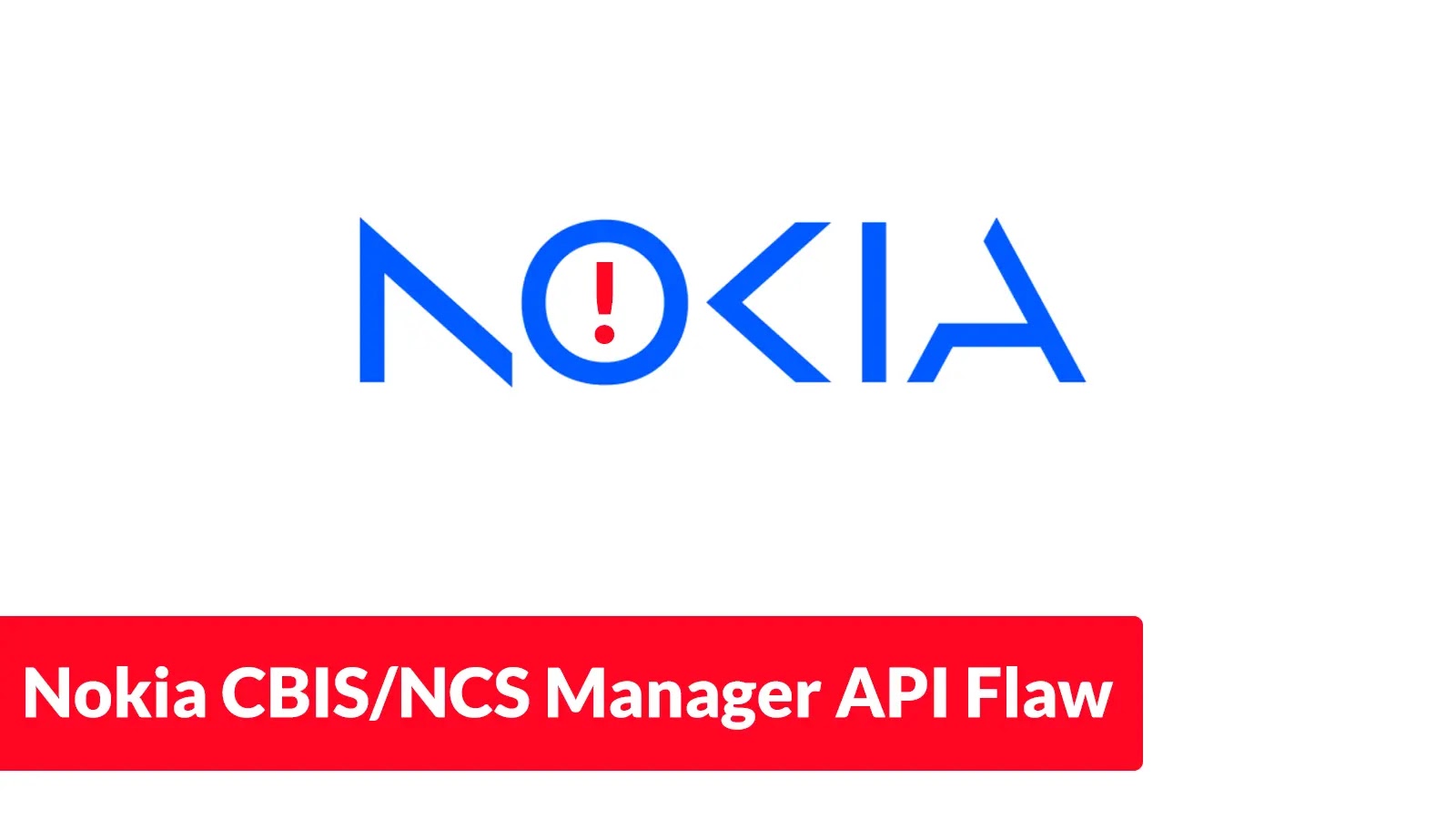
Nokia CBIS/NCS Manager API Vulnerability Let Attackers Bypass Authentication
Nokia CBIS/NCS Manager API Vulnerability: A Critical Authentication Bypass Exploit
A significant security flaw has recently come to light, impacting Nokia’s widely used CloudBand Infrastructure Software (CBIS) and Nokia Container Service (NCS) Manager API. This critical vulnerability, identified as CVE-2023-49564, poses a severe risk, allowing unauthorized attackers to completely bypass authentication mechanisms. For organizations relying on Nokia CBIS and NCS for their cloud and container orchestration, understanding the implications and remediation steps for this flaw is paramount.
Understanding the CVE-2023-49564 Vulnerability
The CVE-2023-49564 vulnerability has been assigned a high-severity score of 9.6 on the CVSS v3.1 scale. This score reflects the ease of exploitation and the potential impact of a successful attack. Specifically, the flaw resides within the CBIS and NCS Manager API, where a specially crafted HTTP header can trick the system into granting unauthorized access. This means an attacker doesn’t need valid credentials to gain entry; they can simply manipulate HTTP requests to access restricted API endpoints.
The core of this issue lies in an authentication bypass vulnerability. By exploiting this, a malicious actor could potentially:
- Gain complete control over the compromised CBIS or NCS environment.
- Access sensitive data and configurations.
- Manipulate or disrupt critical infrastructure operations.
- Inject malicious code or deploy unauthorized containers.
The unfettered access granted by this bypass underscores the urgency for affected organizations to address this vulnerability immediately.
Impact on Nokia CBIS and NCS Environments
Nokia CloudBand Infrastructure Software (CBIS) and Nokia Container Service (NCS) are integral components for many organizations managing virtualized network functions and containerized applications. A breach through CVE-2023-49564 could have widespread and devastating consequences, affecting not only the integrity of the cloud infrastructure but also the services it hosts. The ability for unauthorized individuals to interact directly with the API without authentication means that an attacker could effectively become an administrator, with all the associated privileges and potential for damage.
This type of vulnerability is particularly concerning because API endpoints are often the gates to critical functionalities and data. Bypassing authentication on such a high-level component can lead to:
- Data Breaches: Exposure of sensitive operational data or customer information.
- Service Disruption: The ability to shut down or reconfigure vital network functions and services.
- System Compromise: Complete control over the underlying infrastructure, potentially leading to further attacks.
Remediation Actions for CVE-2023-49564
Addressing CVE-2023-49564 requires prompt and decisive action. Organizations utilizing Nokia CBIS and NCS are strongly advised to implement the following remediation steps:
- Apply Vendor Patches Immediately: Monitor official Nokia security advisories and apply all recommended patches and updates for CBIS and NCS Manager API as soon as they become available. This is the most crucial step.
- Review Network Segmentation: Ensure proper network segmentation is in place to limit the attack surface, even if an API endpoint is compromised.
- Strengthen API Security: Implement additional layers of security for API access, such as API gateways with robust input validation, rate limiting, and stricter access controls.
- Enhance Monitoring and Logging: Increase vigilance on logs related to API access, authentication attempts, and anomalous behavior. Implement alerts for suspicious activities.
- Conduct Regular Security Audits: Perform routine vulnerability scans and penetration tests on your CBIS and NCS environments to identify and address potential weaknesses before they can be exploited.
Security Tools for Detection and Mitigation
While vendor patches are the primary remediation, several tools can assist in detecting vulnerabilities and enhancing overall security posture. Below is a table outlining relevant tools:
| Tool Name | Purpose | Link |
|---|---|---|
| Nessus | Vulnerability Scanning & Detection | https://www.tenable.com/products/nessus |
| OpenVAS | Open-Source Vulnerability Scanner | https://www.openvas.org/ |
| Burp Suite Professional | Web Vulnerability Scanner & Proxy | https://portswigger.net/burp |
| API Gateways (e.g., Kong, Apigee) | API Security, Access Control, Rate Limiting | https://konghq.com/ (Kong as an example) |
| SIEM Solutions (e.g., Splunk, ELK Stack) | Security Information and Event Management, Log Analysis | https://www.splunk.com/ (Splunk as an example) |
Key Takeaways
The CVE-2023-49564 vulnerability in Nokia CBIS/NCS Manager API represents a critical threat due to its high severity and potential for complete authentication bypass. Organizations leveraging these Nokia solutions must prioritize applying vendor-supplied patches and strengthening their overall API security posture. Vigilant monitoring and proactive security audits are essential to safeguard sensitive cloud and container infrastructures against such sophisticated attacks. Remaining informed and acting swiftly is the best defense against emerging threats like this authentication bypass vulnerability.





